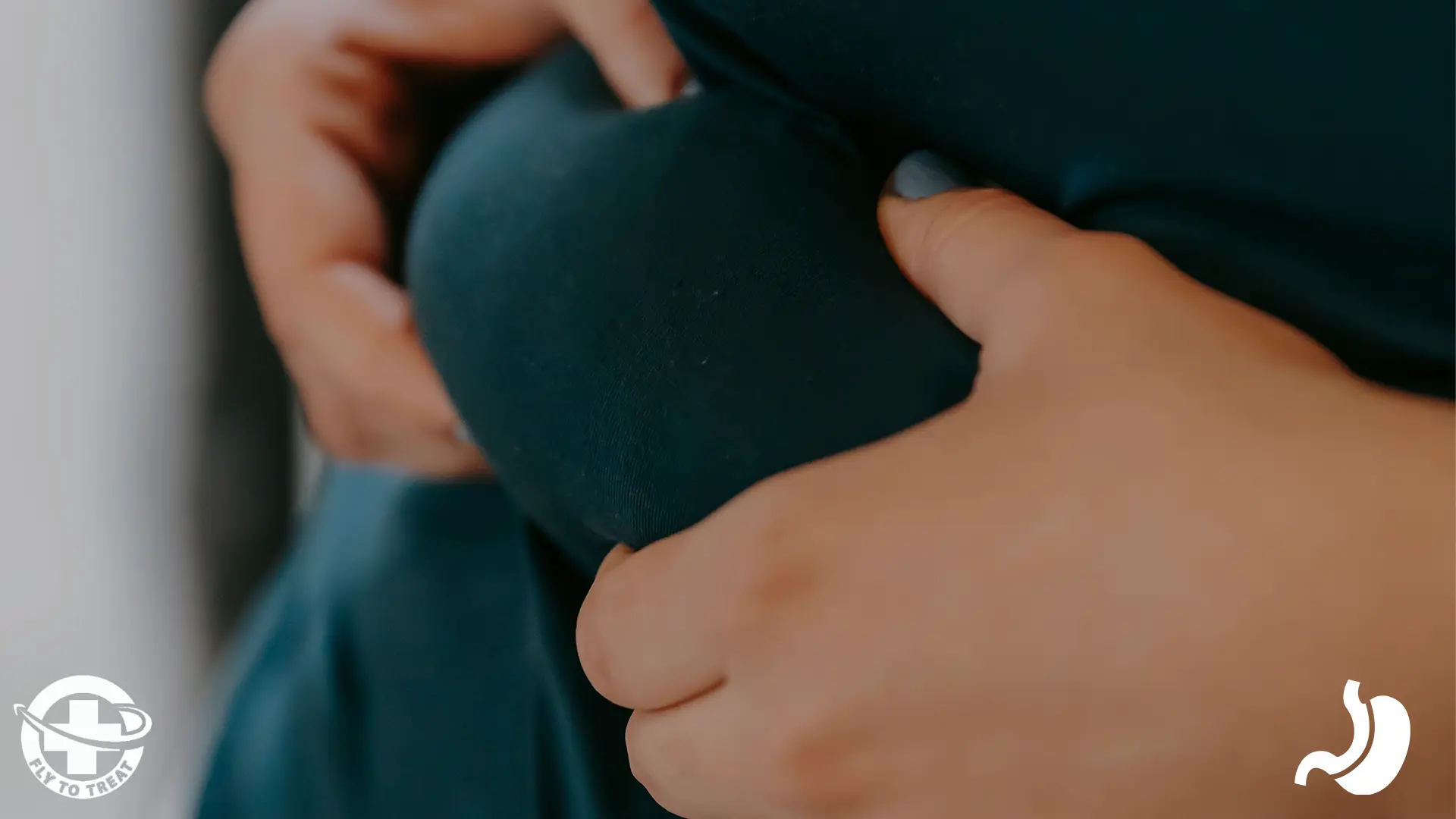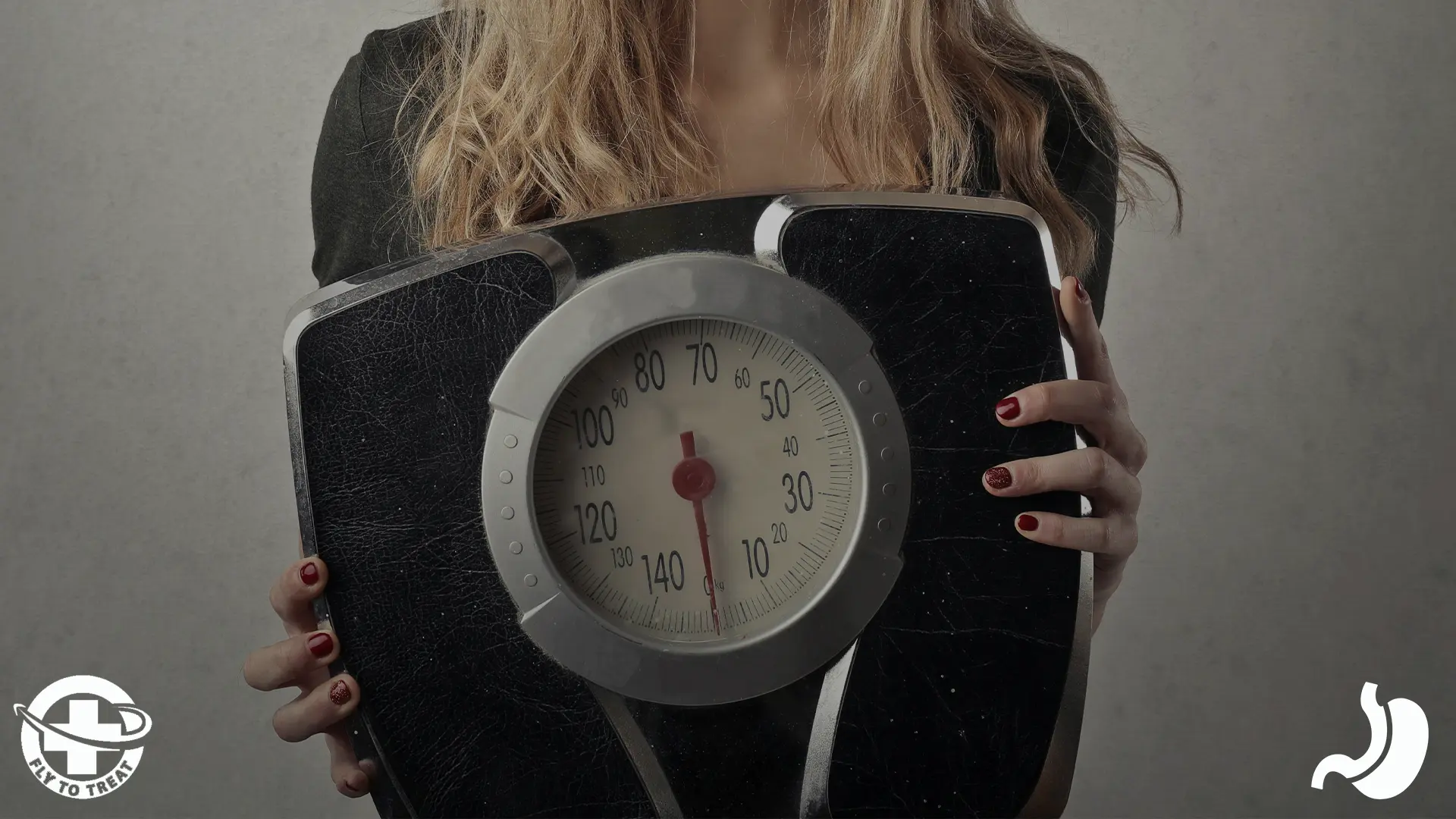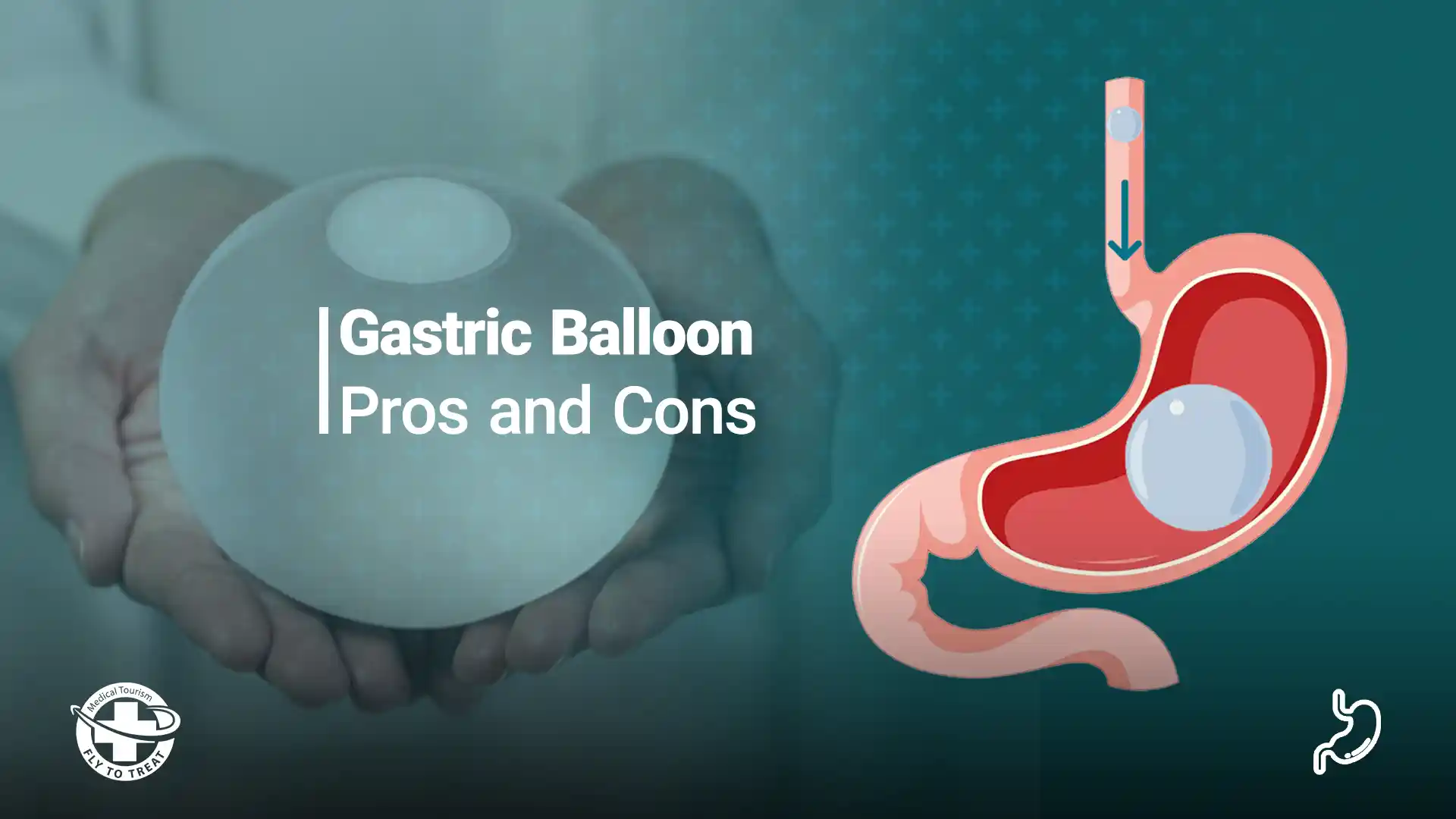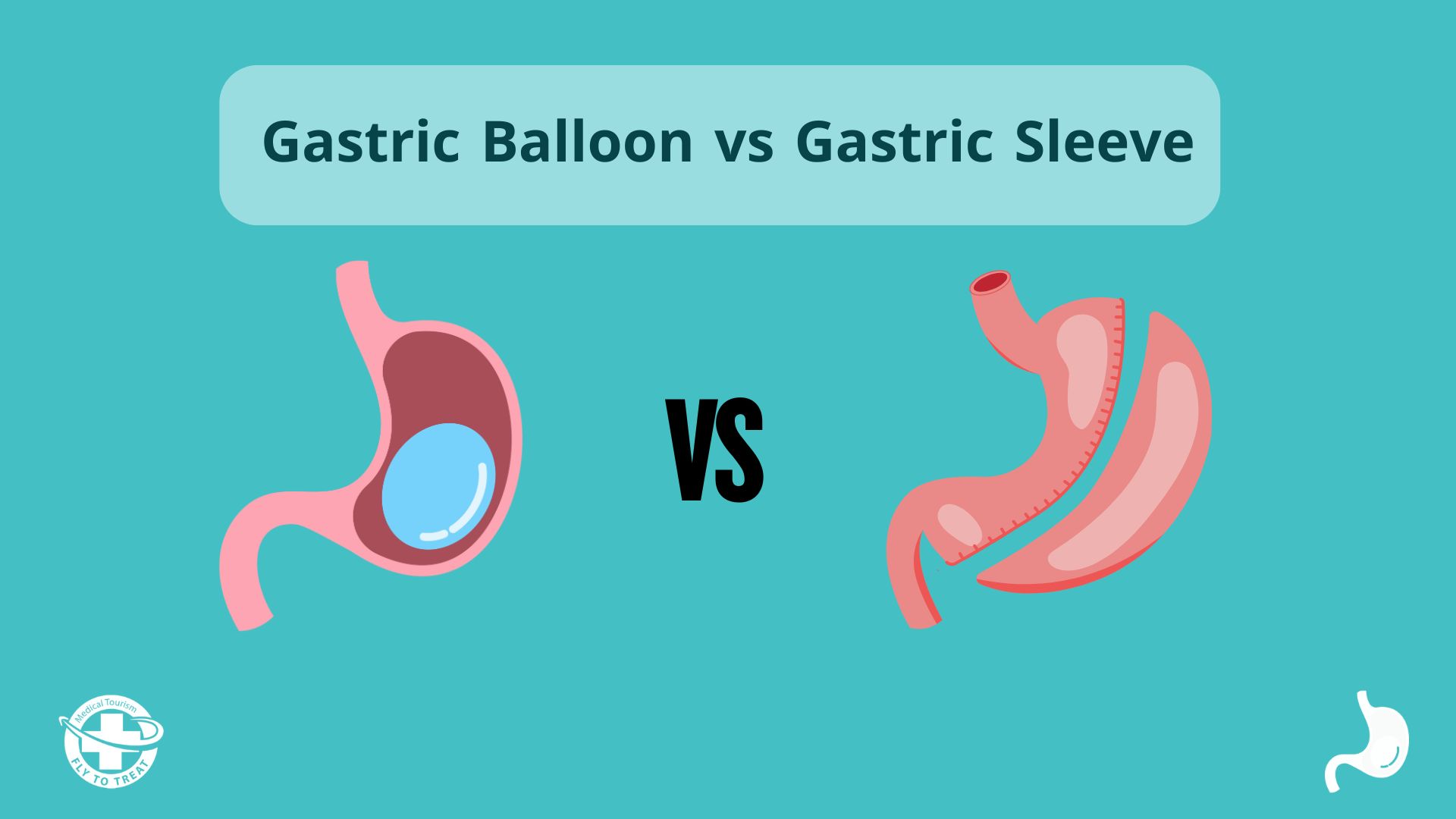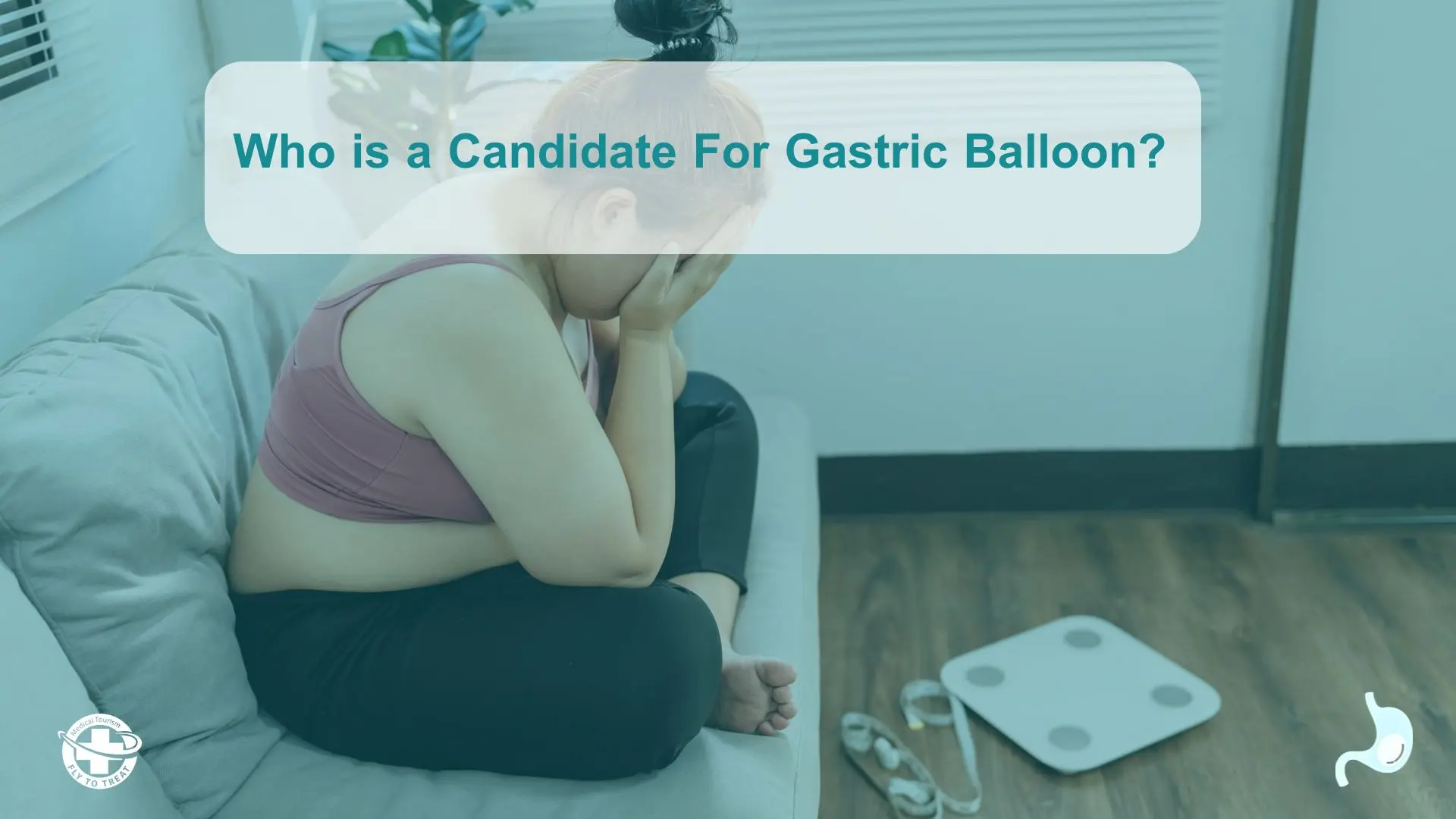
Who is a Candidate for Gastric Balloon?
Gastric balloon options involve placing a grapefruit-sized balloon in the patient's stomach for six months in order to assist them in altering their eating patterns and losing weight. The balloon can be positioned and removed without surgery. Weight-loss procedures using stomach balloons are best for those who have never had any prior esophageal or stomach (bariatric) procedures and are committed to adopting healthier lifestyle choices and receiving routine checkups with their doctors.
As a well-known facilitator that cooperates with many sophisticated medical centers and physicians around the globe, FlytoTreat can recommend the best gastric balloon requirements and gastric balloon options as well as the price quotation for gastric sleeve surgery cost in Turkey, gastric sleeve surgery cost in Iran, etc. in the best medical centers based on your preferences and criteria for destination and price.
Contact us now to get a Free Consultation via WhatsApp or Email.
You may also want to read the article: Gastric Balloon vs Gastric Sleeve.
Table of Contents
Who qualifies for gastric balloon?
You may ask yourself, “Am I a good candidate for a gastric balloon?” Individuals could qualify a gastric balloon options and this treatment may be an effective weight loss option if they:
- Have a BMI between 30 and 40, which measures the correlation between height and weight. A BMI of 30 or higher is a sign of obesity. In some instances, individuals with a BMI between 30 and 40 may be advised to have the operation.
- Have tried diet, lifestyle changes, and medication but have not been successful in losing weight
A less intrusive option to bariatric surgery that alters anatomy is preferred. You can get the weight you want quickly with a gastric balloon if your doctor advises you to lose weight before planned gastric sleeve surgery, like a joint replacement, or to help with conception.
Who is eligible for gastric balloon?
Gastric balloon eligibility depends on several factors related to Body Mass Index (BMI), health conditions, and previous weight loss attempts. In addition, all those looking for quick weight loss options but don’t want to have surgery, those who have tried diets with no noticeable result, those who tend to lose weight but find controlling their appetite difficult, and people who have health problems and have to lose weight because obesity is risky for them, are gastric balloon candidates.
If you want to consider other gastric balloon pros and cons, in terms of intragastric balloon age limit, for example, the gastric balloon is typically recommended for individuals aged 18 to 65, but stomach balloon eligibility depends on overall health and medical evaluation.
The following chart demonstrates the gastric balloon eligibility based on BMI range (body mass index):
The BMI range of 30 to 40 mentioned in the chart above is generally applicable to most stomach balloons depending on Gastric Balloon Costs by Type, including Orbera, Spatz3, Obalon, and Elipse. However, there are slight variations in BMI eligibility depending on the specific balloon type, and eligibility criteria may vary slightly by brand. For example:
- Orbera & Elipse: Typically for BMI 30-40.
- Spatz3: This can sometimes be used for BMI up to 45, as it is adjustable.
- Obalon: Generally, for BMI 30-40, but some clinics accept patients with a BMI as low as 27.
Who is not a candidate for gastric balloon?
Based on the gastric balloon criteria, this option is not appropriate for everyone. Here are the main groups of people who are not ideal gastric balloon candidates:
1. Individuals with Certain Medical Conditions
- Gastrointestinal disorders: Those with hiatal hernia (larger than 5 cm), severe gastritis, peptic ulcers, or inflammatory bowel disease (IBD) (e.g., Crohn’s disease, ulcerative colitis) are at higher risk of complications.
- Previous stomach or esophageal surgery: People who have had gastric bypass, gastric surgery, or significant abdominal surgeries may not be eligible.
- Severe acid reflux (GERD): The balloon can worsen symptoms if not well-controlled.
- Pregnant or breastfeeding women: The balloon is not recommended during pregnancy or lactation.
- Bleeding disorders: Those with blood clotting disorders or who take blood thinners may face risks.
- Severe liver disease: Conditions like cirrhosis or liver failure increase complications.
2. Individuals with Psychological or Eating Disorders
- Uncontrolled eating disorders: People with binge eating disorder, bulimia, or severe emotional eating may not benefit from the intragastric balloon.
- Uncontrolled psychiatric conditions: Severe depression, anxiety, or psychosis that is not well-managed can interfere with post-procedure lifestyle changes.
3. Individuals with Unrealistic Expectations or Poor Commitment
- Expecting extreme weight loss: The stomach balloon helps with moderate weight loss, not extreme obesity (BMI >50).
- Not willing to follow dietary and lifestyle changes: The balloon is a temporary tool; without diet and exercise, weight regain is likely.
4. Those Who Cannot Tolerate the Balloon
- Severe nausea and vomiting: Some people experience extreme discomfort and cannot tolerate the balloon, requiring early removal.
- Allergic reaction to balloon material: Rare but possible. If someone falls into these categories, alternative weight loss methods, such as medications, endoscopic sleeve gastroplasty, or bariatric surgery, may be considered.
Would you like to read about: Best place for gastric sleeve surgery abroad?
Who cannot have a gastric balloon?
People with serious medical conditions such as severe liver disease, active peptic ulcers, inflammatory bowel disease, or bleeding disorders cannot undergo stomach balloon placement. Pregnant or breastfeeding women should also avoid stomachballoons. Additionally, individuals who experience severe nausea and vomiting or have an allergic reaction to the balloon material may require early removal, making them ineligible for this weight-loss method.
How many kg can you lose with a gastric balloon?
Gastric balloon candidates can often lose 10% of their body weight or 30% of their excess weight with an intragastric balloon. That's sufficient to have a profound effect on your health quickly. You can lose more or less weight based on how well you follow the program, just like any other weight loss plan. If you don't follow the program once the balloon is removed, you may also gain back the lost weight.
What is the weight limit for a gastric balloon?
Gastric balloons have no weight restriction for a gastric balloon candidate. Body mass index, not weight, is what matters when using gastric balloons. Gastric balloons are inserted for people with a body mass index over 25 and obese patients with a body mass index over 30.
Therefore, since BMI depends on height and weight, there is no strict weight limit, but the procedure is most effective for moderately overweight to obese individuals who need assistance with weight loss.
What is the weight limit for a gastric balloon based on?
The weight limit for a stomach balloon is based on Body Mass Index (BMI) rather than a specific weight. Generally:
- Minimum BMI: 27–30 (some programs require at least 30).
- Maximum BMI: Typically 40–50 (BMI over 50 is usually advised to consider surgical options like gastric sleeve or bypass).The procedure is generally not recommended for BMI over 50, as surgical options may be more effective.
What is the minimum weight for a gastric balloon?
The minimum weight for a stomach balloon depends on your height since eligibility is based on Body Mass Index (BMI) rather than a fixed weight.
General Guidelines:
- Most intragastric balloon programs require a BMI of at least 27–30.
- To qualify, your minimum weight depends on your height.
- For example, here are estimated minimum weights for different heights based on a
BMI of 27:
- 150 cm (4'11") → 61 kg (134 lbs)
- 160 cm (5'3") → 69 kg (152 lbs)
- 170 cm (5'7") → 78 kg (172 lbs)
- 180 cm (5'11") → 87 kg (192 lbs)
Is a gastric balloon a good idea?
Yes, a gastric balloon, as a short-term and non-surgical weight loss technique aids in weight loss by restricting your food intake and increasing your feelings of fullness. If you're worried about your weight, diet, and exercise not helping, you might want to consider what the intragastric balloon requires. A silicone balloon filled with saline is inserted into your stomach as part of the weight-loss surgery called "intragastric balloon placement.
However, like other weight-loss operations, an intragastric balloon requires a commitment to a healthy lifestyle. For the treatment to be successful in the long run, you must make long-term, healthy dietary modifications and engage in regular exercise.
Conclusion
A gastric balloon candidate is a person who has a BMI between 30 and 40, has struggled with other weight loss methods and is committed to healthier lifestyle changes. While it is suitable for those without prior stomach surgeries or severe gastrointestinal conditions, it may not be recommended for individuals with certain medical or psychological conditions. Various balloon types, such as Orbera, Spatz3, and Obalon, offer slightly different eligibility as gastric balloon criteria. FlyToTreat helps patients find the best stomach balloon options based on their needs and budget. For fee consultation, Click Here
MEDICALLY REVIEWED BY: Dr. Ali Bazazi
AUTHOR: FlytoTreat's team of Authors
12 February 2025 - Updated At: 12 February 2025
Related Articles
Related Services
Comment








